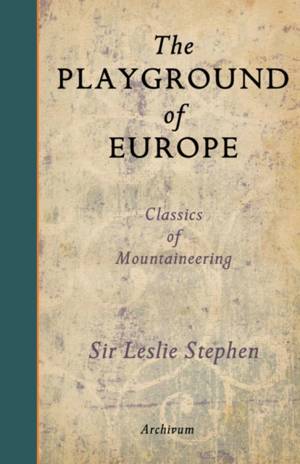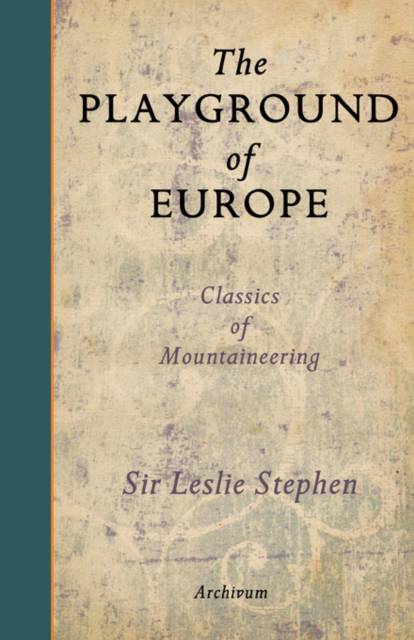
- Afhalen na 1 uur in een winkel met voorraad
- Gratis thuislevering in België vanaf € 30
- Ruim aanbod met 7 miljoen producten
- Afhalen na 1 uur in een winkel met voorraad
- Gratis thuislevering in België vanaf € 30
- Ruim aanbod met 7 miljoen producten
Zoeken
Omschrijving
Sir Leslie Stephen (November 28, 1832-February 22, 1904) was an English author, critic, and mountaineer, and the father of Virginia Woolf and Vanessa Bell. Literary career: While at Cambridge, Stephen became an Anglican clergyman. In 1865, having renounced his religious beliefs, and after a visit to the United States two years earlier, where he had formed lasting friendships with Oliver Wendell Holmes, Jr., James Russell Lowell, and Charles Eliot Norton, he settled in London and became a journalist, eventually editing the Cornhill Magazine in 1871, where R. L. Stevenson, Thomas Hardy, W. E. Norris, Henry James, and James Payne figured among his contributors. In his spare time, he participated in athletics and mountaineering. He was already known as a climber, as a contributor to Peaks, Passes and Glaciers (1862), and as one of the earliest presidents of the Alpine Club, when in 1871, in commemoration of his own first ascents in the Alps, he published The Playground of Europe, which immediately became a mountaineering classic, drawing - together with Whymper's Scrambles Amongst the Alps - successive generations of its readers to the Alps. Mountaineering: Stephen was one of the most prominent figures in the golden age of alpinism (the period between Wills's ascent of the Wetterhorn in 1854 and Whymper's ascent of the Matterhorn in 1865), during which many major alpine peaks saw their first ascents. Joining the Alpine Club in 1857, Stephen made the first ascent, with various other climbers and usually in the company of his favorite Swiss guide Melchior Anderegg, of the following peaks: Wildstrubel, Bietschhorn, Rimpfischhorn, Alphubel, Blüemlisalphorn, Schreckhorn, Monte Disgrazia, Zinalrothorn, and Mont Mallet.
Specificaties
Betrokkenen
- Auteur(s):
- Uitgeverij:
Inhoud
- Aantal bladzijden:
- 284
- Taal:
- Engels
Eigenschappen
- Productcode (EAN):
- 9781597314022
- Verschijningsdatum:
- 18/12/2007
- Uitvoering:
- Paperback
- Formaat:
- Trade paperback (VS)
- Afmetingen:
- 140 mm x 216 mm
- Gewicht:
- 362 g

Alleen bij Standaard Boekhandel
+ 38 punten op je klantenkaart van Standaard Boekhandel
Beoordelingen
We publiceren alleen reviews die voldoen aan de voorwaarden voor reviews. Bekijk onze voorwaarden voor reviews.








